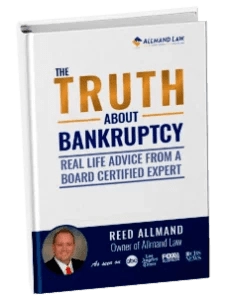
Debtor’s Luxury Vehicle Purchase Indicated Bad Faith Bankruptcy Filing
 In the Chapter 7 bankruptcy case ofHageney, Keith T. and Carolyn J.; In re, the bankruptcy court ruled that a debtors’ Chapter 7 bankruptcy case was probably filed in bad faith because the debtor purchased an unnecessary luxury item just 10 weeks before filing bankruptcy.
In the Chapter 7 bankruptcy case ofHageney, Keith T. and Carolyn J.; In re, the bankruptcy court ruled that a debtors’ Chapter 7 bankruptcy case was probably filed in bad faith because the debtor purchased an unnecessary luxury item just 10 weeks before filing bankruptcy.
The details of the bankruptcy case:
The debtor-husband was a self-employed insurance broker until late in the summer of 2008 when he became an independent contractor for American General Insurance. His new employment produced monthly income of $8,000 beginning in August 2008. This income was much more than he was making on his own. The debtors filed for Chapter 7 relief on Oct. 30, 2008. Consequently, the debtors’ “current monthly income” included two months (August and September) of AGI income. The U.S. Trustee asked the court to dismiss the debtors’ case pursuant to Section 707(b)(3). The UST argued that the timing of the filing was a bad-faith attempt to manipulate the means test. The court disagreed. “Choosing to commence the Chapter 7 on Oct. 30, 2008, rather than Nov. 1 is not an indicia of bad faith, but an acceptable exercise of rights granted under the Code. The debtor’s election to commence a bankruptcy on a particular day may affect the presumption arising under Section 707(b)(2), but that is the result of the application of the statutory formula. A debtor should not be penalized for choosing to commence the bankruptcy proceeding on a date which maximizes the debtor’s rights under the statute,” the court said.
The bankruptcy court’s decision to not penalize the debtors for filing bankruptcy in a manner that would work to their advantage is important. Many debtors who have remained unemployed for a long time and find a job after a few years have often accumulated many debts. It is not an act of bad faith if they file bankruptcy to protect their future income. It is not an act of bad faith to file bankruptcy to protect future assets, even future income from a job. However the bankruptcy court did find the debtors acted in bad faith by filing bankruptcy only 10 weeks after purchasing a luxury item.
However, the debtor-husband’s decision to buy a 2009 Victory motorcycle for approximately $20,000 just 10 weeks prior to the bankruptcy filing was different. He did so despite the fact that only four months earlier he traded in a motorcycle on a new car because the motorcycle was not practical transportation and he wanted to save money.
The bankruptcy court ordered the debtors to convert their Chapter 7 bankruptcy to a Chapter 13 bankruptcy or their case would be dismissed within 10 days.






